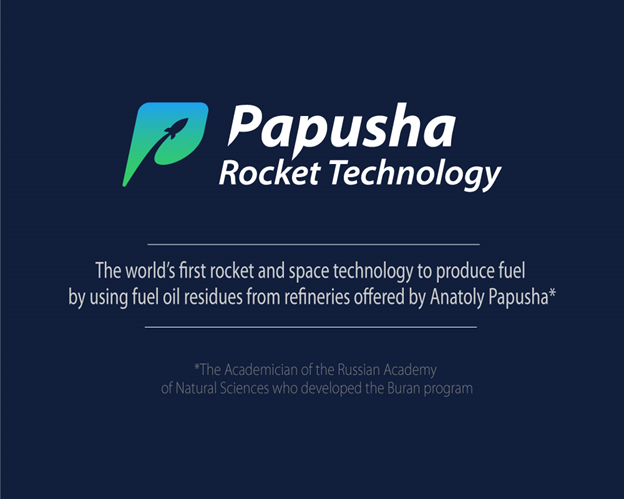Solving real world problems has always been the driver behind the ongoing blockchain revolution. But for one man, this technology became the enabler of a lifelong ambition to create what was previously thought unimaginable: a rocket and space technology that produces fuel with leftover oil residue from refineries. For anyone else, this dream would have been impossible, but Anatoly Papusha is no ordinary man. The renowned Russian scientist is one of the leading minds in rocket and space technology, with over 50 years in the industry, and has spent years applying himself to the development of a solution that would avert the biggest ecological disaster in history.
Disclosure: This is a Sponsored Article
Waste Not, Want Not
The process of refining crude oil leaves a lot of sludge in lakes and storage tanks that are not easily disposable. Also, the current technology in place has little to no way of processing this waste into anything useful, resulting in a ticking ecological time bomb that has been predicted to wreak havoc on our planet in the next century. Tackling this problem head on, the PRT-1 was invented.
Developed by Papusha Rocket Technology, PRT-1 is game changer in the oil refinery industry, making the impossible a reality through the conversion of these highly toxic waste materials into reusable products like diesel fuel, kerosene, gasoline, and valuable synthetic oil.
Refineries worldwide generates an average of 1.35 million tons of waste daily. PRT processing yields up to 60% of liquid fuel from any processed mass and a single PRT unit can process between 30 and 90 tons daily. PRT improves the efficiency of heavy oil processing, enabling countries and companies to receive liquid goods from previously unusable raw materials.
A Global Project
Papusha Rocket Technology has decided to make its invention available for the public to not only participate in the cleaning up of our planet, but also earn from it by leveraging blockchain technology. In order to put this ability in the hands of the community, the company decided to initiate a Token Generation Event (TGE), enabling everybody to contribute to preventing a global crisis.
“I believe the TGE format and decentralized ownership of the project’s tokens will allow the most rapid and qualitative solution of modern ecology and energy problems ”.
Anatoly Papusha, PRT development author
The public event will afford contributors and participants the opportunity to key into the funding and developing of this enterprising solution on a transparent and accountable platform. It will also ensure that the project cannot be hijacked by government or centralized entities.
Token Economics
Having consulted with leading Russian scientists and academicians, the Papusha Rocket Technology team has instituted a novel economic structure for its token based on the supply and demand of its PRT units. The structure is as follows:
Low-power installation cost: 450.000 $
Sale price: 950.000 $
Net profit from one installation: 500.000 $
Therefore, selling 6,200 PRT-2 units in 3 years (calculated at 7% above market’s needs) will result in the team spending $883 million from revenue generated to buy back tokens from exchange. This operation has been projected to drive up PRT token’s market value by up to 3,000 times!
The TGE is scheduled to start on August 22 with a total emission of 100,000,000 PRT. The minimum contribution amount is set at just 100 PRT and a hard cap of 13 500 ETH.
Image(s): Shutterstock.com




